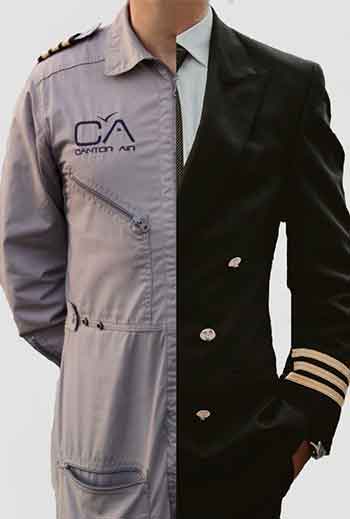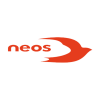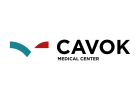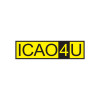A new training approach in ATPL theoretical training, introduced by EASA, to teach new vital skills
Info
- Theory: 15 hrs
- Practice: -
- Duration: 5 days
The Area 100 KSA (Knowledge, Skills, and Attitudes) course is a new training approach in ATPL theoretical training, introduced by EASA and made mandatory from January 2022, which aims to teach pilots vital skills that were not previously addressed by traditional subjects. The Area 100 KSA course addresses the need for holistic results-based training that develops and settles the pilot's skills. It is a transition from pilot training to a competency-based training environment.Pre-Requisites for Admission:
- Be a holder of PPL License (A)
- At least 18 years of age
- Have completed or be attending ATPL Theory course
Course Schedule:
Total hours of theoretical instruction: 15:00
Theory:
Total hours of theoretical instruction: 15:00
Theoretical part involves 15 hours of theoretical instruction conducted in presence with an instructor. Several skills are covered during the course, including:
- Application of knowledge
- Application of procedure and compliance
- Communication
- Aircraft flight path management - Automation
- Aircraft flight path management - Manual
- Leadership and teamwork
- Problem solving: decision making
- Situational awareness and information management
- Workload management
All with introduction of "Case studies" that really happened and with group work.
PLEASE NOTE: Students who intend to sit for the ATPL theory exams must compulsorily take the AREA 100 KSA course and successfully pass the internal exams related to said course.
Scheduled exams:
At the end of AREA KSA 100 education,"assessments"; are scheduled, some of them evaluative as follows:
- MENTHAL MATH
- 1 FORMATIVE ASSESSMENT
- 2 SUMMATIVE ASSESMENT
Passing the Mental Mathematics tests and "Summative Assessments" is a prerequisite for sending the student to the ATPL theory tests at ENAC.
Course Duration:
The duration of the Theoretical Course is normally about 5 days.
Area 100 KSA certification: let's find out more about it
From the very beginning, Cantor Air has worked hard to better address this innovation and to date can call itself one of the few ATOs able to support it. In fact, thanks to a major effort by its TEAM, focused in 2021, the ATO is to date one of the few ATOs able to conduct and administer AREA 100 KSA courses in full adherence to the requirements of the EASA Authority.
But what is KSA 100?
KSA stands for "Knowledge, Skill and Attitude" while 100 represents the training goal in the list of those to be achieved in the ATPL theory program.
What does the implementation of KSA 100 include?
The introduction of KSA 100, represents a different approach to teaching methodology. From EASA studies in commercial transportation, it has been seen that a good chunk of candidates at airline selections (all with valid licenses and ratings), failed the company selection process, due to deficiencies arising from knowledge, "Situation Awareness"and one's ability to make decisions. Thus, due to aptitude. In particular, it was determined that, part of the failures were due to insufficient or too slow adaptation of pilots to new cockpit technologies. Therefore, it was considered important that innovation in training keep pace with technological developments. In other words, European ATOs were requested, to take more important care of these aspects, right from basic training.
The "100 KSA" is a holistic training approach that develops pilots's knowledge, skills, and ";know how"and "know how to be" The distinctive competencies (Core Competencies) are defined as:
- Application of knowledge
- Application of procedure and adherence to regulations
- Communication
- Aircraft flight path management - Automation
- Aircraft flight path management - Manual
- Leadership and teamwork
- Problem solving: decision making
- Situational awareness and information management
- Workload management
KSA 100, represents a momentous change that does not only affect a solitary part of theoretical training, but is applied to all training.
How did CANTOR AIR prepare and organize itself?
It must first be said that CANTOR AIR was already well prepared for this kind of methodology. In fact, as early as February 2021, "Competency Based Training & Assessment (CBTA)" was introduced. A specific training to which all Flight and Theory Instructors employed at ATO were subjected, so that they could apply their instruction according to precisely this new methodology. CBTA is a teaching and assessment method that seeks to identify the critical areas of the individual student's cognitive learning process. Once the critical areas are identified, one can intervene in subsequent training directly in these areas in order to generate more development of one's abilities especially in the areas found to be "weaker" Special care is taken in assessing "SITUATION AWARENESS" and "LEADERSHIP AND TEAMWORK" fundamental parts of a Tomorrow’s Commander.
How does the KSA 100 course take place during ATPL classes in CANTOR AIR?
KSA 100 is nowadays integrated into all ATPL subjects that are conducted by trying to raise awareness of the following areas:
- Knowledge
- Mental Math
- Teamwork
- Situation Awareness
All with introduction of "Case Studies" that really happened and with group work.
In CANTOR AIR's KSA 100 course, there is then an ad HOC KSA 100 instruction, consisting of an additional 15 hrs in the classroom (in addition to the 650 hrs for the modular theoretical ATPL), where the referring instructor will introduce, in addition to the concepts of KSA 100, relevant parts of CREW RESOURSE MANAGEMENT (CRM) and other topics related to SAFETY but still related to the AREAS of study.
At the end of KSA 100 education there are "assessments," some of them evaluative as follows:
- MENTHAL MATH
- 1 FORMATIVE ASSESSMENT
- 2 SUMMATIVE ASSESMENT
Passing the mental math tests and "Summative assessments" is a prerequisite for sending the student to the ATPL theory tests at ENAC.
How are the "Assessments"conducted?
Firstly, Mental math ";Assessments" are tests of calculations from memory, for solving, mostly calculations like those that the pilot must face in flight, to handle special situations. For example, fuel consumption calculations, decomposition of wind vectors, flight times based on average speed etc... As for the"Formative"; and the two "Summative Assessments" again, CANTOR AIR has designed a very practical, flight-based test. It is performed in a flight simulator, and the tests are to be taken by students in pairs. Through this test, the instructors in charge, will be able to judge and correct the interaction activity of the two pilots, so as to grasp their basic knowledge, their management skills, but most importantly their TEAMWORK and DECISION MAKING in solving all the inconveniences presented.
When does KSA 100 begin in CANTOR AIR?
Actually, the AREA 100 KSA method is already integrated from the beginning. After developing the course through an experimental phase in 2021 (in fact it had already been administered to courses completed in 2021), the ATPL 17-2021 course, which began in November 2021, was the first course to officially follow this new methodology.
The official introduction date set by EASA of is January 31, 2022, but the guys at CANTOR AIR have already been in the thick of it since 2021!
Why choose us
Want to Know More?
The Cantor Air team is ready to answer any questions regarding our services and offers.














